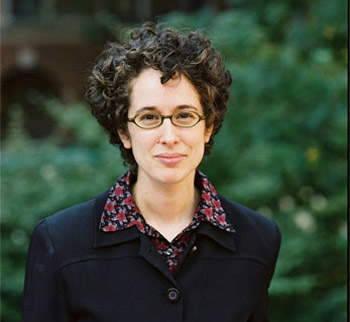TORONTO — Spiritual care is a vital component of the medical team caring for patients with protracted illnesses such as Alzheimer’s disease, says the director of the Jewish Theological Seminary Center for Pastoral Education.
“The way families grapple with the illness is framed in how they understand the meaning of it,” said Rabbi Mychal Springer, in a telephone interview from New York.
Rabbi Springer, 47, a certified Jewish chaplain, will explore Jewish spiritual approaches for families living with protracted illnesses including those whose loved ones are afflicted with Alzheimer’s and dementia, at a program titled “The Long Goodbye: Living with Protracted Illness,” April 21, 7 p.m. at the Lipa Green Centre.
The program, open to the community at no charge, is presented by the Toronto Board of Rabbis.
On April 22, Rabbi Springer will speak at a breakfast for health-care professionals at Baycrest Health Sciences, and at a lunch program at Beth Sholom Synagogue for rabbis and non-Jewish clergy.
All programs are sponsored by Baycrest, the Benjamin Foundation, Beth Sholom, UJA Federation of Greater Toronto and the Hereld Fund at the Jewish Theological Seminary.
Rabbi Springer said that when she was on the verge of becoming ordained at the Jewish Theological Seminary in the early 1990s, she did not know how Judaism could help people.
“I knew a lot of text and tradition, but not how to help. I then did some clinical work at Memorial Sloan-Kettering Cancer Center, and it was there that I came to see how religious resources can make a huge difference [in the lives of patients and their families.] I was [inspired] to change the direction of my work.”
As part of her work now, she said, she trains clergy of all faiths in how to care for people in crisis. “At a certain point in their illnesses, patients often search for ways to understand their lives.
“{With the proper guidance] they can come to celebrate the gift of life, and understand how their life can best be lived. This can apply to families as well.”
Spiritual care does not begin with what people know, she said, but rather with an internal dialogue. “The desire to connect to something larger may happen, but the approach is individualized.”
In a hospice situation, Rabbi Springer said, we meet people “in the fullness of who they are. [The patients] are not seen as symptoms, but as people who need to reflect on their lives. Spiritual care plays a key role in helping people to find closure and peace.”
It is a privilege for her to work with people at this point in their lives, she said. “It is inspiring to be part of the rawness of people’s lives. It becomes clear to me and to the patient, what life is all about.”
For information or to RSVP, email, [email protected].
